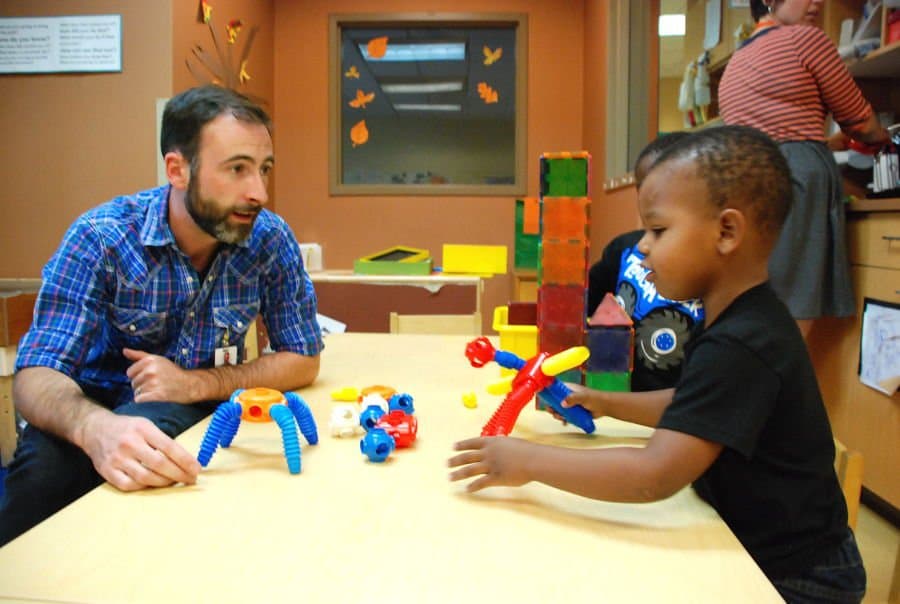
By Ann Schimke, Chalkbeat
New research reveals that despite hefty up-front costs, quality child care programs for disadvantaged children starting just after birth and continuing to age five produce major financial dividends over the long term.
Such programs yield an annual return of 13 percent per child — generating $6.30 for every $1 initially invested in the program, according to the research by University of Chicago economist James Heckman.
The rate of return, which Heckman described as “huge,” is significantly higher than the 7 to 10 percent rate he found in previous research focusing just on the impact of preschool.
“We think this is very strong evidence for supporting this kind of program going forward,” Heckman said during a media briefing Thursday.
The study, released Monday, was authored by Heckman and other researchers from the University of Chicago and the University of Southern California. Heckman is known for his groundbreaking research on the economics of early childhood education.
With many cities and states focused on the expansion of full-day kindergarten or preschool in recent years, the new findings bolster arguments for early childhood investments that also cover kids’ first three years.
“The public policy literature has understated the importance of the very early years,” Heckman said.
At the same time, the study further documents the non-educational benefits of quality child care for at-risk children, particularly when it comes to long-term health outcomes.
“We’re seeing an improved human being in terms of the health capacity…at age 35,” said Heckman. “That’s a big benefit and it’s not a benefit that’s been considered in looking at these early childhood programs in the past.”
He said the research team’s projections show lower risk of diabetes, cancer and heart disease among children who attended the high-quality programs studied, as well as a reduction in unhealthy habits like smoking and drug use.
”What we found is a substantial reduction in those health costs and a much healthier workforce going forward,” he said.
The new study compared children who attended two intensive child care programs in North Carolina starting in the 1970s — the Carolina Abecedarian Project and Carolina Approach to Responsive Education — with those in a control group who had lower-quality child care arrangements.
In 2014 dollars, the annual cost of the intensive programs would be more than $18,000 per child.
In addition to providing full-day, full-year care and regular health exams to the children, the two programs provided child care subsidies to the parents, enabling them to work. Researchers followed participants from eight weeks old until age 35, examining a variety of outcomes, including educational attainment, earnings, health and involvement in crime.
While the early intensive programs benefitted all children, they benefitted boys most.
Heckman said the finding points to the likelihood that boys are more vulnerable and less resilient than girls if placed in low-quality child care settings.
“There do seem to be more harmful consequences for boys than for girls,” he said.
Although the two programs studied operated 40 years ago, the research team noted that such comprehensive birth-age 5 programs exist around the world today. Heckman cited the national Educare network of model child care centers as one example.
Denver’s Clayton Early Learning houses one such center and President and CEO Charlotte Brantley said she welcomed the new study.
“The research is absolutely telling us this is worth the upfront investment,” she said. “I applaud him for coming out one more time, saying this yet again.”
Brantley said there are few programs as comprehensive as Clayton in the state, though some full-day, full-year Head Start and Early Head Start programs may offer something similar.
Clayton, which offers care for infants starting at six weeks of age, provides extensive staff training, in-depth assistance for parents and has very low staff-child ratios. Brantley said the center recently embarked on a pilot project to train other providers on some of Clayton’s key practices.
Chalkbeat is a nonprofit news site covering educational change in public schools.










